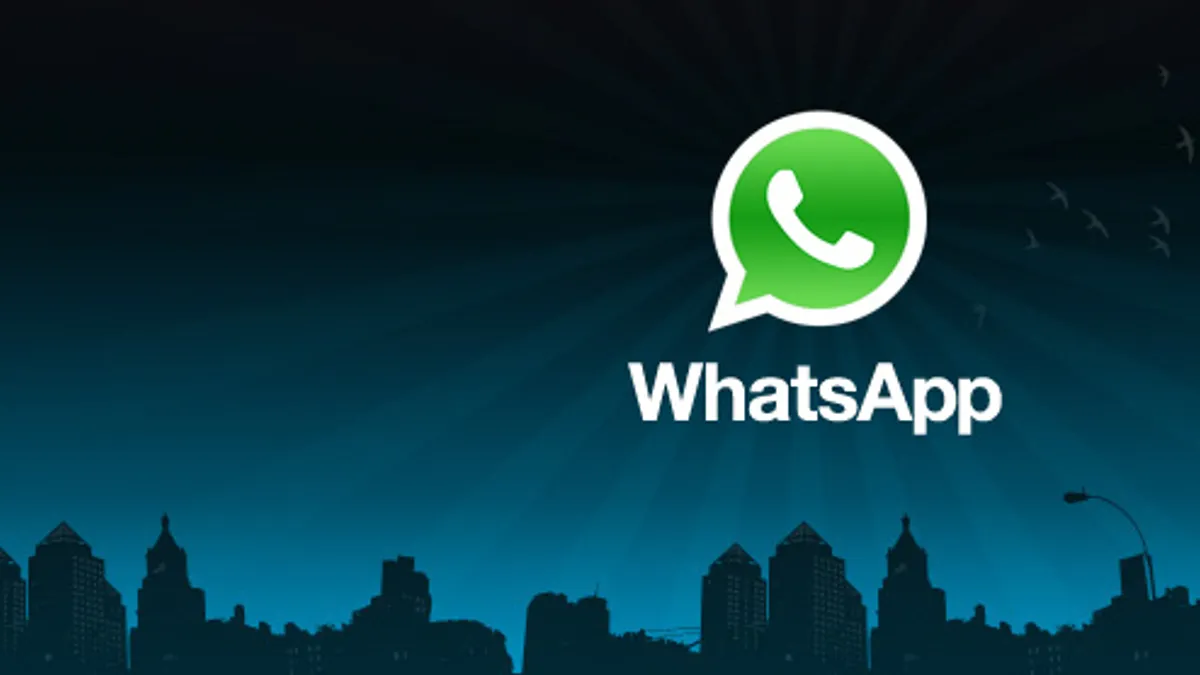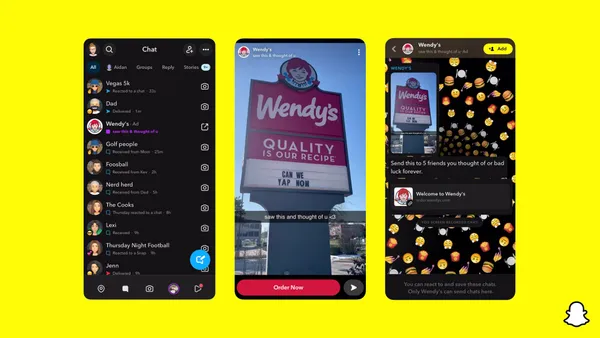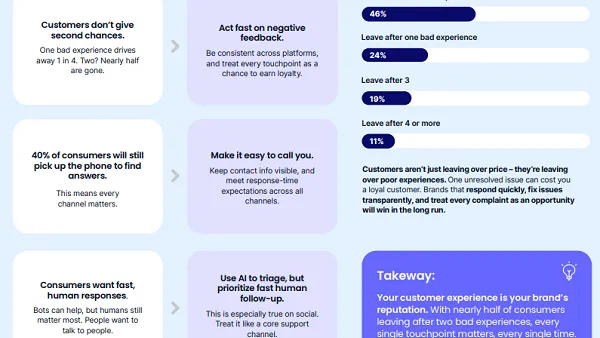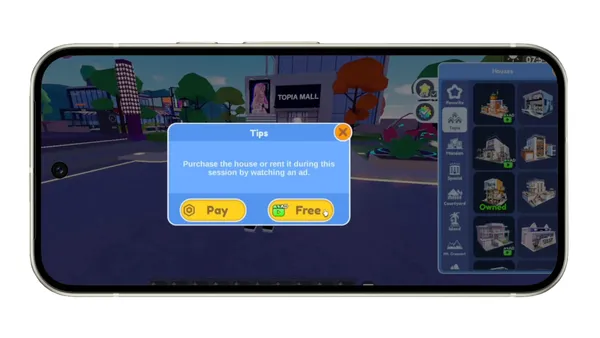Brief:
- WhatsApp, the Facebook-owned messaging app with 1.3 billion users worldwide, is said to be developing a standalone app to let businesses communicate with their customers, The Drum reported.
- The app's FAQ page describes three kinds of accounts that businesses can set up. A "verified" account means that WhatsApp has confirmed that an authentic brand owns the account, indicated by a green checkmark. A "confirmed" account indicates that the phone number of the account matches the number for the business, shown with a gray checkmark. A "business account" is one using the WhatsApp Business app, which hasn't yet been confirmed, as indicated with a gray question mark.
- WhatsApp also added tools for users to control this experience by blocking business accounts and letting them report spam at any time within the chat, India's Business Today reported.
Insight:
By splitting off business chat functions from WhatsApp, the company is repeating the steps Facebook took in 2014 to make Messenger a standalone app outside the flagship social networking site. The separate app could give brands another channel to communicate with their customers, especially younger generations who are more often communicating via chat apps.
WhatsApp has a massive user base, mostly outside the U.S., and Facebook has mostly respected the aspirations of WhatsApp co-founders to avoid cluttering the app with ads, games and other features. Originally, the app was free to download, and then cost subscribers $0.99 a year. Facebook is gradually finding ways to monetize the program by adding business profiles to let users connect with companies through the app and enabling payments — initially in India, its largest market.
This comes as Facebook is continuously expanding the messaging features of its three main platforms — Facebook, Instagram and WhatsApp — in various ways to keep people engaged with more functionalities. The strategy is similar to Chinese apps such as Tencent’s WeChat, which has a wider range of features including payments, ride-hailing, travel booking and reviews, among others.
Facebook is also testing a standalone app called Direct that would serve as a spin-off of photo-sharing app Instagram, similar to how Facebook carved out Messenger into a separate program. Rather than clutter Instagram with more features, Direct appears to focus on messaging in a way that makes it more like Snapchat. Facebook has updated its platforms with a greater emphasis on messaging, with more tools for both users and marketers, including introducing display ads on Messenger in July and a "messages objective" in Facebook Ad Manager in September.














